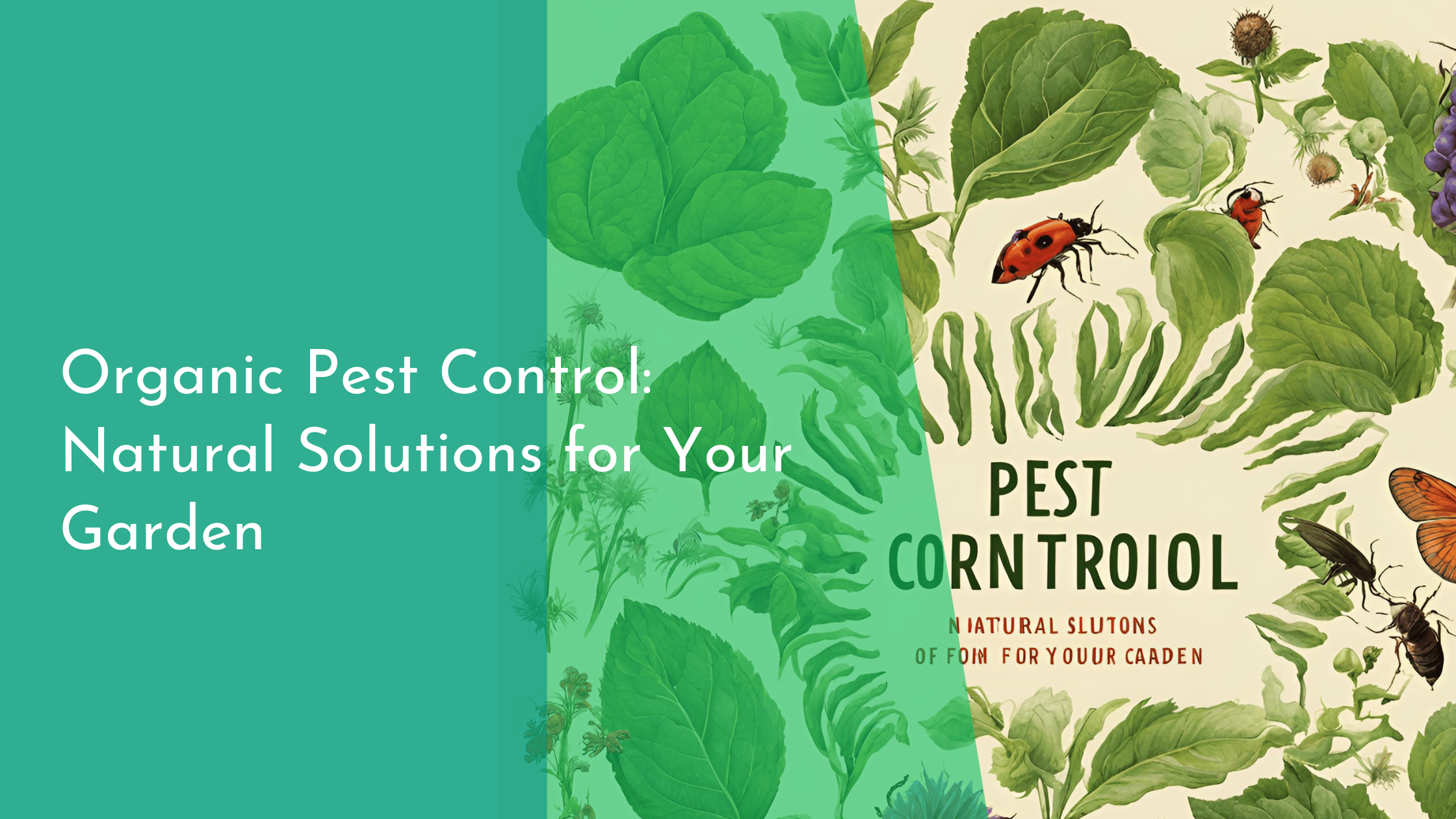Organic Pest Control: Natural Solutions for Your Garden
Gardening is a delightful pursuit that offers a sense of serenity and accomplishment. However, dealing with unwanted pests can turn this peaceful hobby into a frustrating challenge. Traditional chemical pesticides, while effective, often pose risks to the environment and human health. Fortunately, organic pest control presents a sustainable and safe alternative. This article explores the transformative power of organic pest control and how you can implement natural solutions to cultivate a thriving garden.
Discover the Power of Organic Pest Control
Organic pest control revolves around the use of natural methods to manage and prevent pest infestations. Unlike synthetic pesticides, organic approaches are environmentally friendly and promote biodiversity. By choosing organic methods, gardeners can protect not only their plants but also the beneficial insects and wildlife that play critical roles in ecosystem balance. For instance, introducing ladybugs into your garden can naturally control aphid populations, as these beneficial insects feed on aphids and help prevent their proliferation.
One of the fundamental principles of organic pest control is prevention through healthy soil management. Healthy soil fosters robust plant growth, making plants more resistant to pests. By adding organic matter such as compost, mulching to retain moisture, and practicing crop rotation, you create an environment where plants can thrive. Strong, healthy plants are better equipped to fend off pest attacks, reducing the need for external interventions.
Companion planting is another effective organic strategy. This involves growing certain plants together to enhance growth and deter pests. For example, planting marigolds with tomatoes can repel nematodes, while basil can ward off flies and mosquitoes. The scents and chemicals released by these plants can deter pests and attract beneficial insects, creating a natural balance that supports your garden’s health.
Transform Your Garden with Natural Solutions
Transitioning to organic pest control can seem daunting, but it offers a wealth of benefits for both your garden and the environment. One powerful natural solution is the use of neem oil. Extracted from the seeds of the neem tree, this oil disrupts the life cycle of pests without harming beneficial insects. It is effective against a variety of pests, including mites, aphids, and whiteflies, making it a versatile addition to any organic gardener’s arsenal.
Diatomaceous earth is another innovative option. Made from fossilized algae, it acts as a physical barrier by dehydrating and killing soft-bodied insects like slugs and snails. Sprinkling diatomaceous earth on the soil surface forms a protective layer that pests cannot cross, while being completely safe for plants and humans. This natural remedy provides an effective and lasting solution that aligns with the principles of organic gardening.
Homemade sprays, such as those made from garlic, chili, or soap, can also play a pivotal role in organic pest control. A simple mix of water and soap can thwart small insects by suffocating them or disrupting their cell membranes. Chili and garlic sprays, with their pungent aromas, repel unwanted pests without causing harm to your plants. Such DIY solutions are cost-effective and customizable, allowing gardeners to tailor their approaches to specific pest challenges.
Embracing organic pest control changes how we interact with our gardens and the natural world. By choosing natural methods, we contribute to a healthier ecosystem, preserve biodiversity, and ensure our gardens are places of beauty and productivity. Organic solutions offer a pathway to sustainable gardening practices that align with nature’s rhythms and cycles.
The journey toward organic gardening is not just about finding alternatives to chemical pesticides; it is about fostering a deeper connection with our environment. In this process, we become stewards of our gardens, nurturing them with care and consideration. As you implement these natural strategies, you’ll not only protect your plants but also enrich your gardening experience, gaining insight into the delicate balance of nature. Let this organic approach inspire you to create a garden that thrives in harmony with the world around it.

